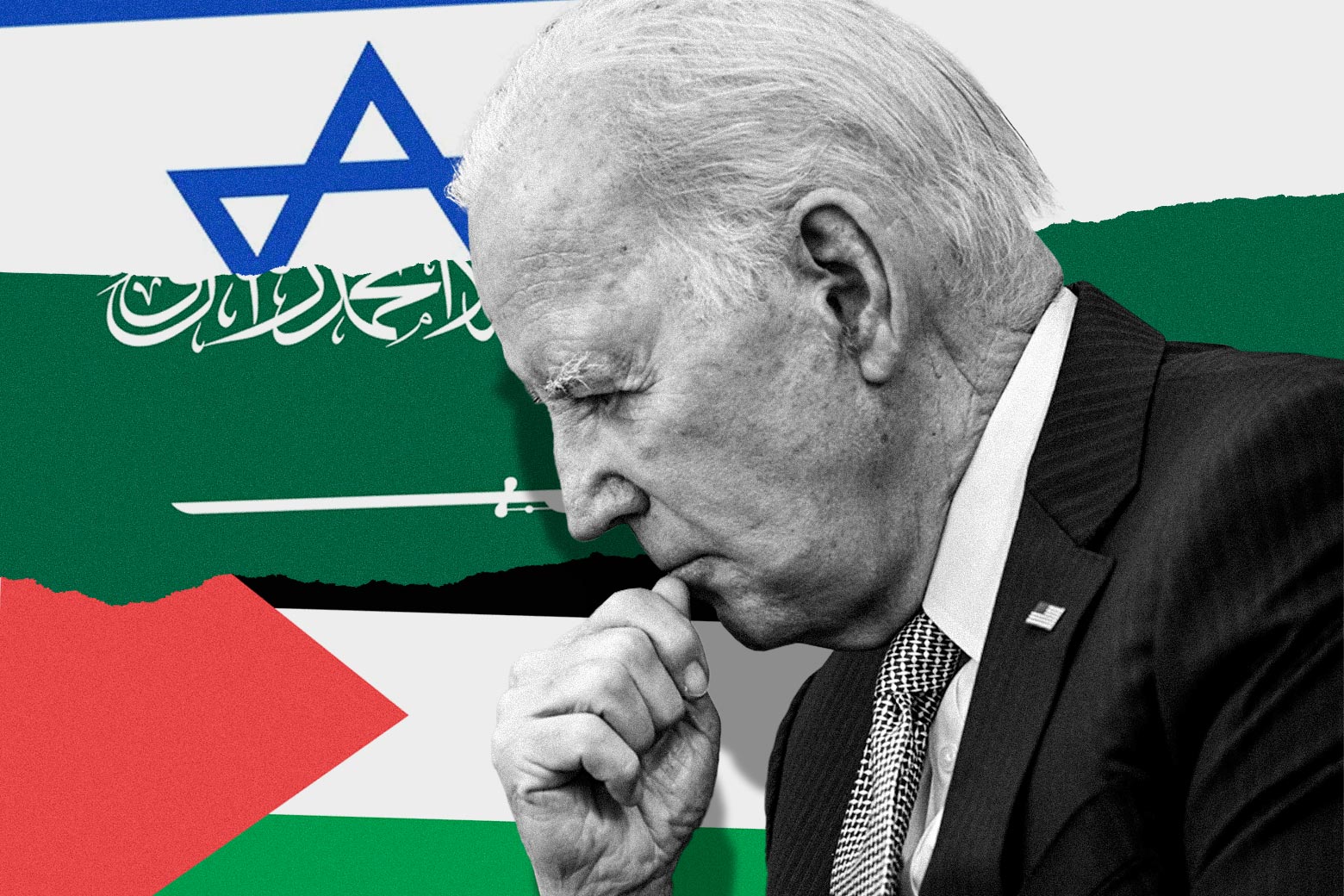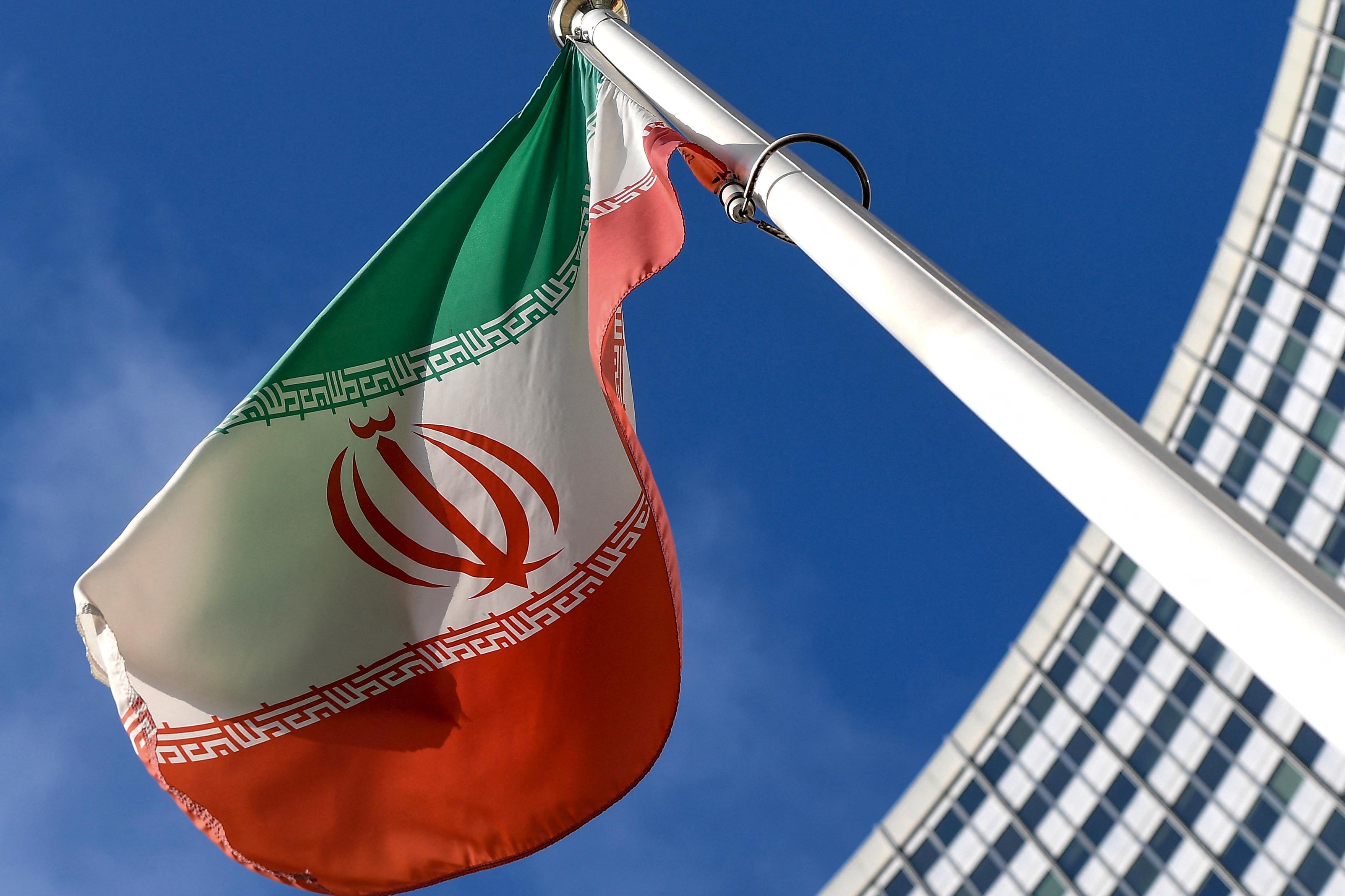FRED KAPLAN

President Joe Biden is exploring the possibility of a big deal in which Saudi Arabia normalizes relations with Israel, Israel reopens talks with Palestinians, and the U.S. signs a mutual defense pact with Saudi Arabia.
New York Times columnist Thomas Friedman has described the deal as “a game changer for the Middle East, bigger than the Camp David peace treaty between Egypt and Israel”—as long as tight restrictions on Israeli settlements are a condition.
Certainly, the package is intriguing. The fact that Biden sent National Security Adviser Jake Sullivan to talk it over with Saudi Crown Prince Mohammed bin Salman, and the fact that Israel’s intelligence chief came to Washington to talk it over with Biden, indicates that this is being taken very seriously—though Biden has said he hasn’t decided whether he should pursue it, even if all the moving parts (of which there are many) could be fastened into a cohesive contraption.
Here’s why I think it’s a bad idea, however skillfully the diplomacy might be maneuvered.
First, the very idea of a U.S. defense pact with Saudi Arabia—a treaty-bound assurance that the United States will come to the royal family’s defense if their country is attacked, in the same way that we have pledged to defend any member of NATO that comes under attack—is, and should be, a non-starter.
It’s one thing to form alliances of convenience with non-democracies. The U.S. has done this on many occasions, for reasons of realpolitik, good and bad. (The classic case of good: Franklin D. Roosevelt allying with Josef Stalin’s Soviet Union during World War II in order to defeat Nazi Germany.)
But it’s another thing to sign a sacred bond—a promise to defend a foreign country as if our own homeland were under attack—with a dynastic monarchy that doesn’t so much as pretend to have democratic aspirations, that has a long and horrible human rights record, and whose leader (the crown prince with whom Sullivan met last week) ordered the brutal murder of journalist Jamal Khashoggi.
Second, the move would have a terrible impact on Biden’s broader foreign policy. He has repeatedly described the current play of world politics as a contest between democracy and authoritarianism. This is the prism through which he has asked us to view Russia’s invasion of Ukraine and our strategic competition with China. He cited it as the justification for his grand industrial policies at home, saying he needed billions of dollars to support U.S. chip manufacturers and other tech industries in order to show that we’re not ceding ground to China, that democracies can still do big things. He organized a summit of democracies, inviting leaders from all over the world to discuss ways to strengthen their standing.
This rationale would implode if Biden signed a mutual defense pact with one of the least democratic countries in the world (ranked, by one index, in between Libya and Uzbekistan). U.S. policy would be derided as not only hypocritical but puzzling, and China and Russia would score major propaganda victories.
To the argument that the United States has never signed a mutual defense pact with a nondemocratic country, some administration officials point to the 1953 treaty that President Dwight Eisenhower signed with South Korea, which at the time was a military dictatorship.
But this comparison holds no water. American troops had just finished fighting a three-year war in Korea; Eisenhower signed the pact as assurance that the troops would return if North Korea broke the armistice and attacked again. And the Cold War was on: The global battle pitted the capitalist West against the Communist East; the U.S. backed many authoritarian governments in the name of anti-Communism. Besides, though this couldn’t have been predicted back then (and nobody cared in any case), South Korea today is a thriving democracy.
The third reason the deal would be bad is that, as part of the arrangement, the Saudis want not only a mutual defense pact but also nuclear technology—for “peaceful” purposes, of course, under close international supervision. But this is a dangerous course to go down. India began its quest for nuclear weapons under the same pretense. Iran insists that its nuclear program is strictly for peaceful ends, yet many observers have their doubts. Why should the Saudis be granted greater trust?
Speaking of Iran, would the mullahs of Tehran hold still if their mortal enemies in Riyadh suddenly signed accords that gave them nuclear technology and formal military backing from Washington? It is a fair bet that they would accelerate their uranium-enriching programs if just to obtain a deterrent—their own nuclear arsenal to deter the Saudi arsenal that they would see tearing just around the bend. They would very likely also tighten their own bonds with Russia, China, North Korea, or all three to ensure that, if they have to stare down “the great Satan,” they don’t do so alone.
In other words, this pact could trigger a new Cold War more complex and dangerous than any confrontation we’ve ever seen. (In the old Cold War, we had to deal with just one mortal foe, most of whose leaders had an interest in stability.)
Despite all this, Friedman finds the prospect of a Saudi deal intriguing, but only if some demands are placed on Israel—not just resumption of talks with Palestinians, as the Saudis have mentioned, but a freeze on settlements and a promise never to annex more territory. Friedman likes this idea because he fears that Prime Minister Benjamin Netanyahu’s far-right government and its move to scuttle judicial review pose grave threats to Israeli democracy. He wants to pose this challenge to the right-wingers: You can have more territory or peace with Saudi Arabia (and probably, with it, the entire Muslim world), but you can’t have both. Which one will it be?
This is what makes the deal at all intriguing. But there are two more reasons not to get behind it. First, it almost certainly isn’t going to happen. Netanyahu’s government (which has to be a part of this deal) isn’t going to go along with a ban on settlements. (The prime minister will want to avoid having the “either/or” question even come up.) And the Palestinians are in no shape to start negotiations, even if Israel initiated them.
Second, a U.S. mutual-defense pact, like all treaties, requires ratification by two-thirds of the Senate. Many otherwise skeptical senators, from both parties, would probably sign on if Netanyahu lobbied in its favor, but many—almost certainly more than one-third of the body—would vote nay. This includes many Republicans, who would oppose handing Biden any diplomatic achievement that they have the power to block, and many Democrats, whose loathing for the Saudi royal family and distrust of Netanyahu run very deep.
If the Saudis are interested in normalizing relations with Israel, following the path of their Sunni allies in Bahrain and the United Arab Emirates, then they will do so. The conditions that they’re requesting from Washington should be viewed as sweeteners for the Saudis, poison pills for us. Let the talks continue; let Biden and Sullivan explore the possibilities. But the deal on the table is not a deal worth their time, much less their honor.

No comments:
Post a Comment